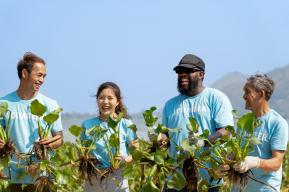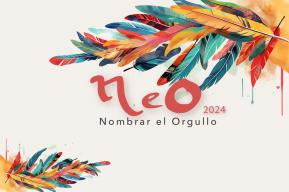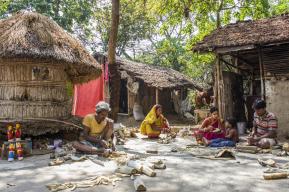Project
Young Reporters for the Environment

Engaging youth to become the voice of the environment is the mission of Young Reporters for the Environment. This program, coordinated by the Foundation for Environmental Education, is based on various media tools and media literacy.
It empowers young people to take an educated stand on environmental issues they feel strongly about. It gives tools and resources to think critically about climate change and educates them in constructive journalism. Through various campaigns and competitions, young people can produce and submit journalistic pieces as articles, photographs or videos, and help local communities to understand the environment in which they live. Thus, 11 to 25 year olds become real journalists specialized in the environment.
Young people engaged in constructive journalism
At the origin of this idea, Philippe Saugier, a young, enthusiastic and idealistic Frenchman, founded the Ozone Project which sent three youth missions up North to follow, monitor, and report on the work of scientists. Young Reporters for the Environment was born from this first experience.
For 25 years, the YRE programme has trained and engaged over 450,000 young people from 44 countries in constructive environmental journalism. In 2018, he received the first edition of the Earth Award by the World Environmental Education Congress (WEEC) Network and the city of Luino. In 2019, this program was also honored with a special mention for the Global Youth & New Media Prize.
YRE is supporting the Foundation for Environmental Education strategy – GAIA 2030 to drive impactful actions to conserve global biodiversity, reduce environmental pollution and climate action. To support this, the Foundation has developed a range of courses for the stakeholders offered through its online Moodle platform (FEE Academy). Today, the program’s ambition is to increase the outreach to over 75 countries.
Do you want to know more about participating in this program?
Project began: 01/01/1994
Leading organisation: Foundation for Environmental Education
The country where the team is based: Denmark
Covered Countries: Australia, Argentina, Bahamas, Belgium, Bosnia and Herzegovina, Brazil, Canada, China, Cyprus, Czechia, France, Ghana, Greece, Iceland, India, Ireland, Italy, Latvia, Malaysia, Malta, Mauritius, Mexico, Mongolia, Montenegro, Morocco, Netherlands, New Zealand, Portugal, Romania, Singapore, Slovakia, Slovenia, South Africa, South Korea, Spain, Sweden, Switzerland, Turkey, United Kingdom
Theme: Biodiversity, Education for Sustainable Development
Sub-themes: Forests and desertification, Natural disasters risk reduction, Natural resource management, Participatory science/citizen science, Sustainable lifestyles
Tag: #Women #Youth
Project needs
- In search of financial partners
- Research
- Sponsorship/ Philanthropy












